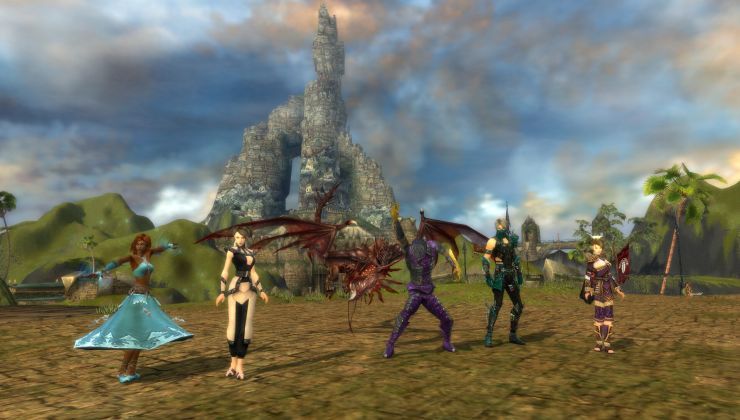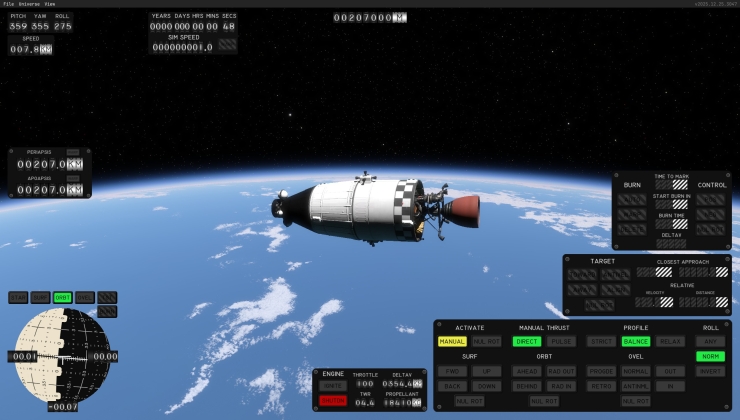According to Statcounter, which should be taken with a pinch of salt of course like any sampling, the Linux share on the desktop hit nearly 4% in December 2023. Last month was a record too and a clear trend over time, as going back a couple of years, it was rarely coming close to 2% but now it's repeatedly nearing 4% so it's quite a good sign overall.
The latest from Statcounter shows for all of 2023 below:
- January - 2.91%
- February - 2.94%
- March - 2.85%
- April - 2.83%
- May - 2.7%
- June - 3.07%
- July - 3.12%
- August - 3.18%
- September - 3.02%
- October - 2.92%
- November - 3.22%
- December - 3.82%
Looking at December it shows Windows rising too, with macOS dropping down. If we actually take ChromeOS directly into the Linux numbers for December 2023 the overall number would actually be 6.24% (ChromeOS is Linux after all).
Here's how just Linux looks over time on Statcounter since early 2009 until now:
Seems like a pretty clear trend over time don't you think? Nice to see this happening elsewhere, just like we've seen over years with the Steam Survey.
You can see their stats over here.
Quoting: PenglingIt's terrible. In fact, software usage on a desktop environment in general is a really bad experience on BSD period.Quoting: buonoGonna have to start a new website - gamingonbsd soon.... :)I know it's a joke, but I must admit I'm curious about the state of gaming on BSD - it's a subject that I know absolutely nothing about!
Quoting: PenglingQuite comparable to gaming on and amd64 Mac(or gaming on linux 10 years ago)Quoting: buonoGonna have to start a new website - gamingonbsd soon.... :)I know it's a joke, but I must admit I'm curious about the state of gaming on BSD - it's a subject that I know absolutely nothing about!
Wine is available.
Vulkan is available.
There is a quite good linux compatibility layer, so linux natives work most of the time.
Proton-GE isn't available.
Said differently everything Apple's Rosetta can run + most linux native.
Quoting: 14It's terrible. In fact, software usage on a desktop environment in general is a really bad experience on BSD period.I've never yet used any variant of BSD (it's one of those things that's been on my to-do list for more years than I'd like to admit! :tongue:), so I've got no frame of reference for that either, unfortunately...
Quoting: LoudTechieQuite comparable to gaming on and amd64 Mac(or gaming on linux 10 years ago)That's actually better than I expected! Thanks very much. :smile:
Wine is available.
Vulkan is available.
There is a quite good linux compatibility layer, so linux natives work most of the time.
Proton-GE isn't available.
Said differently everything Apple's Rosetta can run + most linux native.
Last edited by Pengling on 13 Jan 2024 at 2:30 pm UTC
Quoting: PenglingYou're welcome.Quoting: 14It's terrible. In fact, software usage on a desktop environment in general is a really bad experience on BSD period.I've never yet used any variant of BSD (it's one of those things that's been on my to-do list for more years than I'd like to admit! :tongue:), so I've got no frame of reference for that either, unfortunately...
Quoting: LoudTechieQuite comparable to gaming on and amd64 Mac(or gaming on linux 10 years ago)That's actually better than I expected! Thanks very much. :smile:
Wine is available.
Vulkan is available.
There is a quite good linux compatibility layer, so linux natives work most of the time.
Proton-GE isn't available.
Said differently everything Apple's Rosetta can run + most linux native.
What has to be pointed out here though is that most BSD users and developers don't actually care that much about gaming.
Its pretty sturdy state is mostly, due to what I call compatibility leak.
The FOSS world finds compatibility important, because incompatibility is how the proprietary platforms keep them caged and it encourage collaboration, which is their greatest strength.
One of the effects is that all "core" projects like Wine are developed to be as compatible with as much as possible.
Bsd gaming benefits from this.
Wine supports around 300 "platforms"
The Linux kernel is technically also a Bsd kernel, because it's mostly to fully compliant with the Bsd standard.
The GNU project has stopped counting.
Beside a Linux/bsd compatibility layer and wine there are also Darling(wine for apple), tons of emulators, C compilers for virtually every processor available, the entire Mesa project, a foss and still maintained alternative to PalmOS, XWayland and so further.
Quoting: tuubiOh I see, thank you for explaining and clearing this up, no clue windows made a subsystem but does make sense it uses virtualization and I agree, seems on par with waydroid for difficultyQuoting: JordanPlayz158I was asked to look into this a while back. Windows 11's WSA (Windows Subsystem for Android) obviously makes use of virtualization, and it's not quite an out-of-the-box experience. It's not installed by default for starters. Secondly, you can only install apps from the Amazon Appstore unless you want to sideload them using the Android SDK. Oh and the Amazon Appstore is only available in a limited set of countries so sideloading might be your only option.Quoting: CatKillerOh? Fascinating, when did Windows attain this functionality, back in the day, BlueStacks was the way (which I would not say is out of the box or different than Waydroid). Not sure how ChromeOS does it without a container thoughQuoting: JordanPlayz158Where did you get this info, wasn't difficult to get waydroid installed and working on my linux distro?Waydroid boots up Android in a container, and needs to be installed separately. As I understand it, neither of those are true for ChromeOS or Windows - they can run Android applications out of the box.
Doesn't sound much nicer to use than Waydroid to be honest.






 How to setup OpenMW for modern Morrowind on Linux / SteamOS and Steam Deck
How to setup OpenMW for modern Morrowind on Linux / SteamOS and Steam Deck How to install Hollow Knight: Silksong mods on Linux, SteamOS and Steam Deck
How to install Hollow Knight: Silksong mods on Linux, SteamOS and Steam Deck